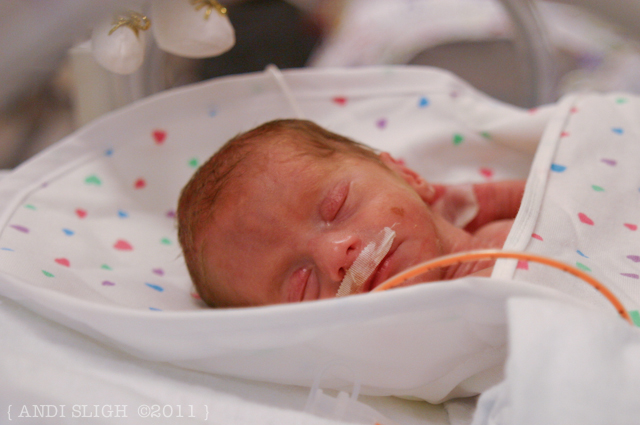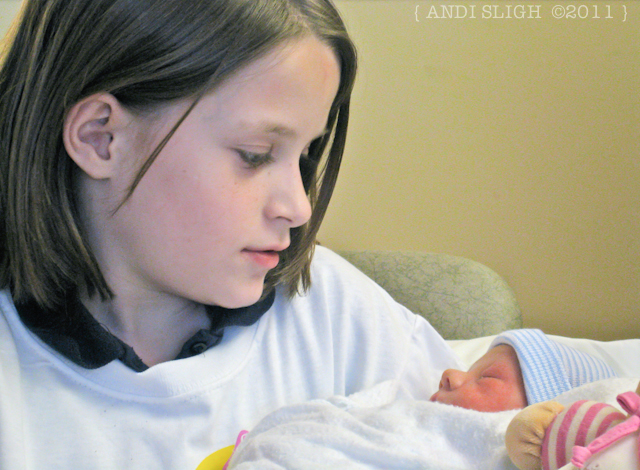Counter-cultural.
It’s not a description I’d normally use to describe myself or my family. I’ve always been pretty conventional (in the way that Southern girls are conventional, with blush and lipstick). I made A’s all the way through high school, graduated valedictorian of my class, and went to college. I obtained a degree in electrical engineering, launched a career, met and married a man who did those same things, and purchased a home in the suburbs. I was driven. I wanted what everyone I knew wanted. I worked hard to achieve it.
Somewhere along the way, something changed.
It started with Sarah Kate.
Premature birth and a diagnosis of cerebral palsy stripped away my desire for corporate ladder-climbing and glass ceiling-breaking. I fell backwards into the world of stay-at-home-moms, and I liked it, but as much as I tried I never could quite become exactly like the other SAHMs I knew. Playdates weren’t the light-hearted chat fests that I wanted them to be; instead, they brought flashing signs and loudspeakers in my mind, announcing with bitter clarity that my daughter was different. Her achievements didn’t measure up to her peers. Over time, however, the differences became less pronounced. Sarah Kate was accepted on her merits.
Seven years later, the narrative that I had built – I’m Not Very Different – came crashing down. Suddenly, I was no longer the mom with the little girl who doesn’t walk well. I was the mom with two disabled children, and zero typical ones. Before Nathan, I was (mostly) like all the other moms. After, I became part of the counter culture.
I don’t care about the PTA; I care about the r-word.
In Ian Brown’s recent article about his disabled son, Walker, he asserted that
“Disability is by nature anti-establishment. It’s the very lack of so-called normal expectations, the absence of the possibility that Walker and I can ever ‘achieve’ much or even disappoint each other, that frees us from the established and the status quo, to be who we actually are with each other, rather than what society says we are supposed to be.”
How freeing, and how beautiful!
In many ways, Sarah Kate and Nathan are very similar. They have the same mouth and the same brilliant blue eyes. Neither of them has ever had an aversion to strangers. Both are happy, easy-going children. But in other ways, they are vastly different. Sarah Kate was just tapped for the gifted program at her school; Nathan will likely have some degree of intellectual disability. Sarah Kate has always been accepted and admired by her peers; Nathan may be rejected by much of society because of his distinctive physical features.
So I find myself in an odd limbo between conventionality and counterculturalism. Sarah Kate is smart and possesses the personality and drive needed to succeed in life. We’ll push her to graduate high school, go to college, earn a degree, and move to the suburbs. Poor balance and an inability to run probably won’t stop her from achieving any of those things, if she wants them.
Nathan, on the other hand, will always be unconventional. Regardless of his achievements, his very existence will run counter to the cultural norm. In a time when so many like him are no longer being allowed to exist, he will stand apart as a different type of person. In a world that has little patience for the imperfect, he will challenge the status quo.
And because we are his parents, Mr. Andi and I will also challenge the status quo.
And his conventional-appearing sister will be counter-cultural, as well.



Love it, Andi. It’s so true that we are “counter-culture” as SPN moms. I now have to stop and think about what it was like before when I didn’t know anything about this world and didn’t want to. It’s become part of my life already and it’s hard to imagine it another way.
… but of course sometimes I do imagine it another way. The mainstream culture way. I got to admit, sometimes it seems nice.
It does, but…if we lived in the mainstream we would never be able to grasp what the counterculture was like. Would we appreciate it for its beautiful ordinary-ness?
Hmm, except for the makeup wearing part, our paths growing up seemed similar (well, my husband and I are attorneys, but we met in school as well). I always just wanted to blend in and not be noticed. When I got pregnant with triplets in a small town, I fretted that everybody would know me (and when we moved word had gotten out about “some woman pregnant with triplets!”). And then my daughter died. And now with Julia – yeah, I certainly don’t blend in at mom’s groups, and kids are starting to notice and ask about her differences. Yeah, that blending in thing is really working out for me!
I’m a born introvert, although I’ve “trained” myself over the years to be able to adapt and appear extroverted. Being the one who was different was never something I wanted – I only wanted to be really good at the ordinary.
Another great post. We as parents are the only ones who can challenge the status quo.
At this point in Nathan’s life, that’s absolutely true. My hope is that as he grows he’ll begin to be the one who challenges the status quo. I’ll always do it for him, but my dream is for him to do it for himself.
Yes, Andi that is my hope also. I always forget that my baby girl will not always need me to stand up for her as she gets older and I am confident she will challenge the status quo. She has been doing that since she was 2 weeks old and rolled over and I remember the lady telling me that she wasn’t doing it correctly and would eventually stop. I guess she showed that lady she was so wrong because she never did stop rolling over. I always say “Lacey is creating her on milestone chart.”
I’m glad to have found your site! Our son Noah was born with down syndrome it’s been a whirlwind of fun every since.
When Noah was born I was searching online for “down syndrome videos.” I didn’t have much luck…so we started our own site, posting a daily one minute video about our son! It’s been a great, and we’ve connected with so many people who are looking for down syndrome information.
Andi, Thanks for pointing out this post. I sometimes feel tired about the counter-cultural aspect of our lives, and sometimes I feel privileged by them because I know they force us to think more deeply about making decisions and what we value and why we care about what we care about. Not only that, but they help us meet people/families like yours, which is a gift in and of itself. Thanks for inviting me over today.
There is a weariness that comes with the counter-culture, to be sure. But such is the price of enlightenment, I guess. 😉
Until this June when I retired, I had a program called, “Stars of Life,” for children with special needs. I have been a US volunteer here in Brazil for nine years. The children who have been it this program have been the most wonderful gift of my life. I have learned so much from them and their families, “the poorest of the poor,” in this impoverished area. The most important thing I leaned is that these special children are here to help us grow spiritually. To help us awaken to the specialness of each of us while teaching us that ultimately all are One. Thank you for the beautiful work you do with your blog. I send you much love and light and honor you before our Creator for having the courage to speak your truth. Hugs for you and those beautiful children of your! pat, Source of Inspiration at http://patcegan.wordpress.com/